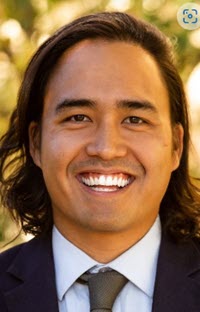Abstract
Excerpted From: Adam Minoru Yasui Estacio, The “Newest ‘Yellow Peril”’: How American Legal History Shaped the Rise in Asian American Hate Crimes in the Covid-19 Pandemic, 100 Denver Law Review 305 (Fall, 2022) (153 Footnotes) (Full Document)
 In January 2021, a nineteen-year-old stranger approached an eighty-four-year-old man and violently shoved him to the ground. The eighty-four-year-old sustained brain hemorrhaging and soon died of his injuries. A month later, a stranger repeatedly assaulted a sixty-five-year-old woman while a security guard watched and failed to intervene. In June 2021, a man was attacked in broad daylight while peacefully walking with his wife at their local park. And in September of that same year, a group of senior citizens congregated at an event named “Seniors Fight Back” to learn the basics of “how to defend themselves against an attacker.”
In January 2021, a nineteen-year-old stranger approached an eighty-four-year-old man and violently shoved him to the ground. The eighty-four-year-old sustained brain hemorrhaging and soon died of his injuries. A month later, a stranger repeatedly assaulted a sixty-five-year-old woman while a security guard watched and failed to intervene. In June 2021, a man was attacked in broad daylight while peacefully walking with his wife at their local park. And in September of that same year, a group of senior citizens congregated at an event named “Seniors Fight Back” to learn the basics of “how to defend themselves against an attacker.”
All these instances reflect a drastic rise in hatred and violence directed at people of Asian descent during the COVID-19 pandemic. The man attacked in the park and the sixty-five-year-old woman were of Filipino descent. The eighty-four-year-old man was a Thai immigrant. And the “Seniors Fight Back” class hosted over 200 senior citizens of various Asian backgrounds. Recently, the New York Police Department reported that anti-Asian hate crimes increased 1,900% in New York City in 2020. In 2021, the coalition Stop AAPI Hate documented over 6,600 reports of hate incidents targeting the Asian American Pacific Islander (AAPI) community from March 2020 to March 2021.
This Comment will examine how this rise in violence against Asian Americans is not only the result of an irrational, racist reaction to the COVID-19 pandemic but also an established history of discriminatory laws and legal decisions that frame Asian Americans as “perpetual foreigners.” Part I of this Comment provides a definition of the perpetual foreigner construct and identifies three primary beliefs, or “pillars,” that the construct is built upon. Part II examines how the American legal system created and then promoted the perpetual foreigner pillars through three legal methods: directly targeting and discriminating against Chinese and Japanese immigrants, identifying Asian Americans as unworthy of naturalization, and portraying Asian Americans as a threat to U.S. national security. Part III discusses two high profile incidents highlighting the historical consequences of the perpetual foreigner construct. Finally, Part IV demonstrates how framing Asian Americans as perpetual foreigners continues today as what this paper labels the “Newest ‘Yellow Peril,”’ which is exemplified by a drastic rise in hate crimes targeting Asian Americans during the COVID-19 pandemic.
[. . .]
The perpetual foreigner construct is deeply rooted in American history. From laws excluding early Asian immigrants from working on the western railroads to scapegoating citizens through online social media, Asian Americans suffer from the same three perpetual foreigner assumptions: that Asians Americans are inescapably foreign, are not entitled to American civil rights, and at any moment can become “the enemy.”
Although discrimination and misconceptions are still prevalent today, there are promising signs that the perpetual foreigner construct, along with other labels and stereotypes plaguing Asian Americans, is being recognized and addressed. On May 20, 2021, President Joe Biden signed the COVID-19 Hate Crimes Act, a bill “intended to expedite the review of pandemic-related hate crimes and make grants available to help local law enforcement improve reporting of bias-driven incidents.” Additionally, news organizations across the country and the world are covering the rise in Asian American hate crimes and are starting to critically examine how misconceptions of Asian Americans perpetuate hate, fear, and violence. This progress is slow and gradual, but it is about time that both American society and the law start treating Asian Americans as genuine and essential members of this country.
__________
Adam Minoru Yasui Estacio is of Japanese and Filipino descent. He is currently a Juris Doctor Candidate at the University of Denver Sturm College of Law.


